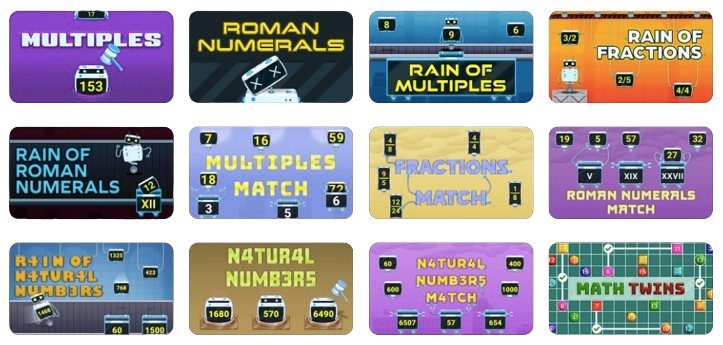
Math Mania: This Is How Math Transforms Young Minds
Think math is just about numbers? Think again! Math can actually boost your child’s brainpower in amazing ways. It’s not just about solving equations; it’s about enhancing memory, attention, and problem-solving skills. Let’s explore how math can set your child up for a bright future.

Sharpening Recall Skills
Math is like a gym for the brain. When kids work on math problems, they’re not just learning numbers—they’re strengthening their memory. Each time they remember a formula or follow a step-by-step process, their brain gets a workout. This repetition helps solidify information, making it easier to retrieve when needed.
Studies show that kids who practice math regularly have better memory skills. Why? Because math helps them use tricks like rhymes or visual aids to remember complex ideas. For instance, they might visualize the steps of a math problem or create a rhyme to remember the order of operations. Over time, these memory workouts enhance both short-term and long-term memory, making academic challenges a breeze.
Math’s Formula for Concentration

Ever notice how kids can get distracted so easily? Math can help with that. Solving math problems requires focus and attention to detail. As kids work through these challenges, they learn to tune out distractions and concentrate on the task at hand. This practice of sustained attention translates to better focus in other areas of life.
Math also teaches kids how to plan, organize, and prioritize—skills that are useful in all areas of life. Think of math as a personal trainer for the brain, helping kids manage their time and tasks more effectively. For example, working through a complex math problem can teach a child how to approach a large project step-by-step, enhancing their ability to stay on task and see it through to completion. These executive function skills are crucial for academic success and beyond.
Turning Problems into Solutions with Logic
One of the most impactful benefits of math is how it transforms kids into expert problem-solvers. Math teaches them to break down big problems into smaller, manageable parts and to use logic to find solutions. This kind of thinking is valuable not just in math class, but in real-life situations too.
Math also encourages creativity. When kids explore different ways to solve problems, they become more innovative thinkers. This creativity helps them tackle challenges in school and beyond.
Game On! Turn Numbers into Fun
Who says math has to be boring? Enter math games — the fun way to learn! Platforms like CogniFit offer interactive games that make math practice exciting and beneficial. These games adapt to your child’s skill level, keeping them engaged and motivated.
Math games help kids develop critical thinking and problem-solving skills while having fun. The variety of games ensures there’s something for everyone, from basic arithmetic to complex puzzles. Plus, real-time progress tracking and adaptive difficulty levels keep the challenge just right.
Another great feature of CogniFit is the community aspect. Kids can join a group of fellow learners, sharing tips and celebrating achievements. This sense of community makes learning math a collaborative and enjoyable experience.
From Chores to Challenges: Making Math Fun at Home
Want to make the most of math for your child? Here are some easy tips:

- Turn Everyday Tasks into Math Lessons: Use activities like cooking or shopping to practice math. It makes learning relevant and fun. For example, have them measure ingredients while baking, or ask them to calculate the total cost of items in your shopping cart.
- Play Math Games and Puzzles: Interactive games from CogniFit make math practice enjoyable and engaging. They offer a break from traditional worksheets while reinforcing key concepts. Try setting aside time each week for a family game night with math puzzles.
- Foster a Love for Math: Show kids that math is fun and rewarding. Celebrate their successes and support them through challenges. Share your own enthusiasm for math by solving problems together, or point out how math is used in real-world applications, such as in sports statistics or building projects.
- Set Achievable Math Goals: Help kids set realistic goals and celebrate their progress. This builds confidence and motivation. Break down larger goals into smaller steps to keep them feeling accomplished and encouraged. For instance, aim for mastering multiplication tables by the end of the month, and celebrate with a small reward when they do.
Math is more than just numbers; it’s a powerful tool for developing your child’s brain. By integrating math into daily activities and making it fun through games, you can help your child improve their memory, focus, and problem-solving skills. Embrace the power of math to unlock your child’s full potential and pave the way for a bright future.
Disclaimer: CogniFit’s cognitive training and assessment tools are designed to promote cognitive stimulation and mental engagement. They are not intended to diagnose, treat, or prevent any medical condition. All information presented here is for educational and informational purposes only and should not replace professional healthcare advice.
The information in this article is provided for informational purposes only and is not medical advice. For medical advice, please consult your doctor.















